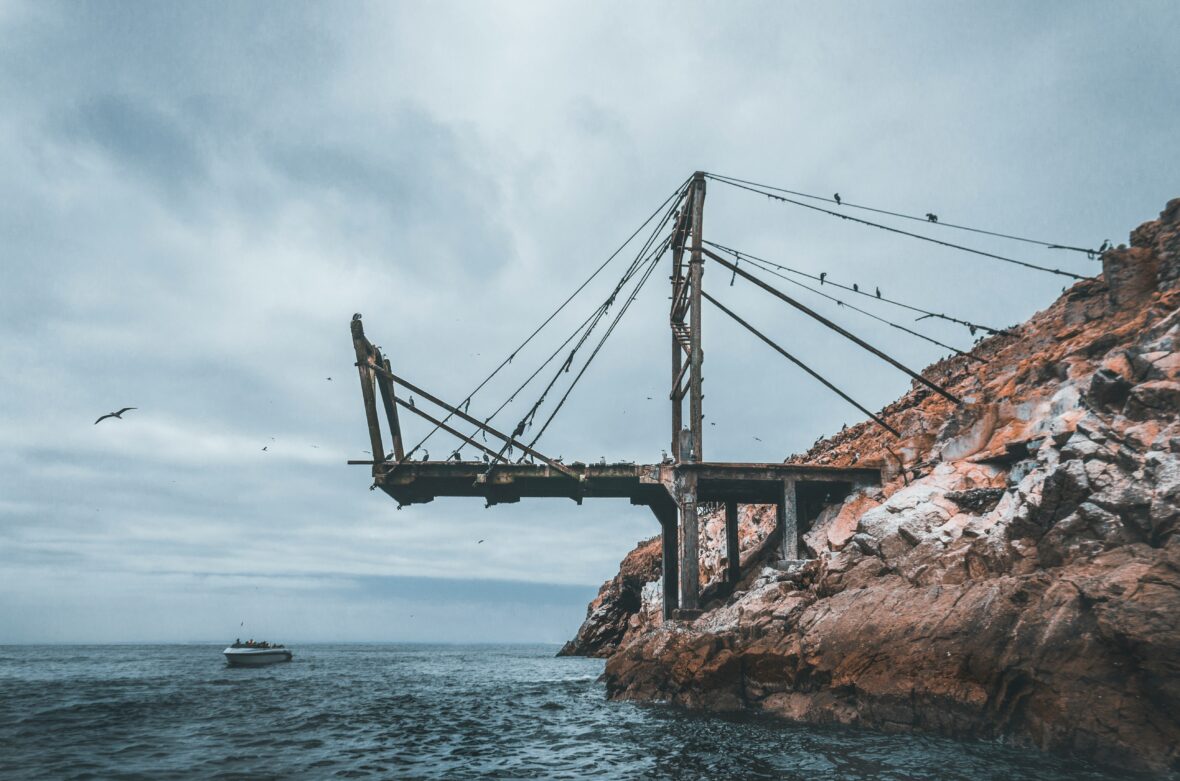Chapter 1: The Night of Shadows
The interesting story ‘The Broken Horizon has been reviewed and repackaged excitingly.
In the sunlit village of Ede, Nigeria where children laughed as they ran through the fields and women cooked aromatic meals for their families, there was a little boy named Ikotun. Ikotun’s life is described as full of dreams and life at twelve.
His days were spent chasing butterflies and frolicking with his friends by the River, besides helping his mother Abeni with the cooking chores. Chike’s father toiled in the fields, and what they had was a small home full of love and care.
The Comfort
That comfort was, however, eradicated one night. The peaceful life that the two brothers and their people have been leading was suddenly disturbed by noises of turmoil. The night, which used to be still and quiet, was full of noise from metal and the screams of the villagers. Chike burst into Ikotun’s room, his face pale and eyes wide with fear. “Ikotun, we have to leave now!” he urged.
Taking her breaths, Abeni was crying with her arm embracing Ikotun. “They are coming for us”, she said softly as if she had just woken up from the most terrible nightmare. The bleak fear and the confusion wrestling in Ikotun’s heart were entering the culminating phase. It is only thanks to his parents that the young man found the familiar comfort to stay afloat in the sea of events that followed.
The Slave Traders
The slave traders with eyes of death and brutal efficiency, attacked the village. Some of them even kidnapped people from their homes, their coarse palms and menacing voices disruptive to the calmness that used to reign in Ede.
It is pictured here that Ikotun was separated from his parents and his pleas to be left behind amid the raid were futile. He was chained and again thrown in a ship that lay in the distance; its black form so distinct in the night like a black panther.
Chapter 2: The Ship of Sorrows
It was a prison ship and the cargo hold remained as a black and small place keeping the noises of hopelessness inside. The stinging smell of perspiration, despair, and the taste of crushed ambition surged through the air. Into this sordid world, Ikotun was taken with others and the faces they pulled were a composite of despair and acceptance.
The Crew
The crew of the ship was the most inhuman to the prisoners and averted their eyes to their plights with lots of scorn.
Ikotun found himself huddled in a corner with an older man named Olumide. Olumide’s face was lined with age and hardship, but his eyes held a glimmer of kindness. “Stay strong, little one,” Olumide said, his voice a rough whisper. “We will get through this. You must believe that.”
Experience
Every one of the days spent on board this ship was a challenge to survive. Torture was an everyday experience of the crew. The captives were allowed a minimum supply of edible food, rodents infested, and in overwhelming small quantities. In the middle of the day, it was almost unbearable and nighttime was equally as cold.
This is a bitter reminder of their plight at the hands of the crew’s acts of cruelty. Anyone who dared to speak out was met with violence, their cries echoing through the dark hold of the metallic container.
A Great Storm
One night, as the ship was tossed by a fierce storm, Ikotun huddled with Olumide. A gust of wind, to it, howled like a dying creature, and waves banged at the boat like a rain of bullets. The ship’s timbers creaked seriously under the pounding of the storm; the prisoners were tossed in this case like dolls.
Again, as the roar got louder, Ikotun clutched onto the top of a wooden beam almost trembling with fear. He could feel the wails of his fellow prisoners together with the sound of the storm as it dominated the cries of the sea.
Chapter 3: Adrift
But when the storm was over, the ship was just a wreck. By this time, all that remained was the washed and shattered chine of the boat and on this, Ikotun floated alongside a piece of driftwood. The ocean extended itself for as far as the eye could see; a cold, unfeeling expanse of water. He was skinny and pale with tiredness and hunger visible on his face.
The Nature
There were days in the sun and in the moon and the sea did not change and was a terrible company. Ikotun shuddered as hunger clawed its way into his very being, like a demon that refused to let go. His throat was dry and he felt the water stretching out in front of him seemed to mock him like a never-ending joke.
He too had lost all hope as days changed to nights, nights to days, sun to moon, and moon to sun without sparing a glance at him.
One evening while adrift of course, Ikotun started feeling hopeless to an extent. Above him, the stars twinkled faintly but mercilessly, their icy brilliance a constant cruel existence he was never going to have again.
On the Sea
He spoke to the sea as if it were a living entity. “Please,” he whispered to the endless waves. “Let me find land. Let me find a place where I can be safe.”
On the fifth day, his prayers seemed to be answered. The land appeared on the horizon, a distant promise of salvation. With the remaining energy, Ikotun struggled towards it and anticipation mixed with fear filled him up.
After a while, he managed to reach the shore of the island where he fell to the ground and felt the sand on him as if it were the strangest as well as the most familiar experience which could ever be imagined. It was barren and rocky but was much better than the colder and unfriendly sea.
Chapter 4: A New Nightmare
Ikotun’s respite was short-lived. The land where he had washed ashore was occupied by another crew of slave traders, though much more barbarous than the other one. They grabbed him as soon as possible, and their gaze was as lifeless as their eyes. This new world was cruel and barbaric and had no tolerance for the indigenous people.
The Conditions Were Brutal.
This made Ikotun work extremely hard and all his strength was drained out of him. The difference in the environment and the people he came across were cold or even hostile most of the time. In the hands of his masters, he is nothing but meat with no value having been sold and later on ill-treated by his new masters who seemed to be racially bigoted against him.
This was a certain Ikotun who was working from dusk till dawn using an old lamp that produced minimal light one evening he came across a woman named Nkechi. Nkechi was older and had seen much of the world’s cruelty, but her eyes were kind. “You must stay strong,” she said softly. “The world is harsh, but we must hold on to hope. Hope is what keeps us alive.”
Sorrow
Ikotun nodded though sorrow filled his heart. Nkechi’s words were soothing to his tormented soul but the problems he encountered were enormous. The discrimination he faced daily would simply not let up. This was true especially on his skin which he used to be proud of but now made him prosperous for scorn and even abuse.
Nevertheless, one has to mention that Ikotun was an indomitable spirit, and even under torture his willpower did not fade. He kept on struggling for change and the only thing that he held in him was the fact that one day things would come to change. He never gave up hope that indeed in the future, he would not have to go through the agony he was passing through.
Chapter 5: A Flicker of Hope
One day, Ikotun’s life took an unexpected turn. As he worked in the fields, he was approached by a man named Samuel, a teacher known for his compassion and belief in the potential of others. Samuel had heard about Ikotun’s resilience and offered him a chance to change his fate.
“I see something special in you,” Samuel said, his voice gentle but firm. “Come with me. Let’s see if we can find a better path for you.”
Betrayal
Ikotun was hesitant, his trust shattered by years of betrayal. But Samuel’s sincerity and kindness persuaded him to take a leap of faith. He followed Samuel to a modest school, a place that promised safety and a chance for a new beginning.
The school was a sanctuary. It was a place where Ikotun could escape the brutality of his past and focus on learning. Samuel became not only a mentor but a friend. He recognized Ikotun’s potential and encouraged him to excel in his studies.
One day, Samuel handed Ikotun a book. “This is more than just a book,” he said. “It’s a key to a world beyond the suffering you’ve known. Use it wisely.”
The school became a haven where Ikotun’s spirit could heal. The lessons he learned provided him with a sense of purpose and hope. For the first time in a long while, he felt safe and valued. The promise of education was a beacon of light in his life, a chance to rise above the suffering he had endured.
Chapter 6: Triumph Over Adversity
As the years passed, Ikotun’s perseverance began to bear fruit. His dedication to his studies was unwavering, and he excelled in his classes. His mind, once consumed by despair, was now a fertile ground for knowledge and growth.
The Journey
One day, during a school assembly, Samuel spoke about Ikotun’s journey. “This young man has overcome unimaginable odds,” he said, his voice filled with pride. “He is a beacon of hope for us all. His story is a testament to the strength of the human spirit.”
Ikotun stood among his peers, his heart swelling with a mix of pride and humility. He had come a long way from the broken boy on the ship. His success in education was not just a personal victory but a symbol of resilience and hope.
With each achievement, Ikotun’s future brightened. His story began to inspire others, a testament to the power of the human spirit to overcome even the greatest of adversities. He became a role model, a living proof that even the darkest of circumstances could be transformed into a future filled with promise.
Epilogue
Ikotun’s journey from the depths of despair to the heights of achievement was a powerful narrative of resilience and hope. His story resonated with many, a reminder that even in the face of overwhelming adversity, the human spirit can shine with an unyielding light.
The Shadows
His horizon, once obscured by the shadows of his past, was now a landscape of infinite possibilities. The boy who had survived the wreckage of a ship, the cruelty of slave traders, and the harshness of a new world had found his place in a future filled with promise.
Ikotun’s story became a symbol of hope and strength. It was a powerful narrative that touched hearts and inspired change, a reminder of the unbreakable will to rise above even the darkest of circumstances. His journey was a testament to the enduring power of the human spirit, a story of triumph over adversity that would resonate for generations to come.

Chapter 7: Beyond the Horizon
As Ikotun grew older, his accomplishments continued to inspire those around him. He pursued higher education, determined to use his experiences to advocate for others who had faced similar hardships. His passion for education and justice drove him to work with organizations dedicated to ending modern-day slavery and promoting human rights.
The Young and the old
One afternoon, as Ikotun spoke at a conference about his journey, he saw the faces of those in the audience—young and old, all moved by his story. He could feel the impact of his words, the hope they ignited in others.
His journey from the depths of despair to the heights of achievement was now a source of inspiration for many.
Ikotun’s work extended beyond advocacy. He began to establish educational programs for underprivileged children, believing that education was the key to breaking the chains of oppression. His efforts brought him into contact with countless individuals whose lives were transformed by the opportunities he helped create.
Significant Challenges
In one of his educational programs, he met a young girl named Amara. She was bright and curious but had faced significant challenges in her young life. Ikotun saw in her a reflection of his younger self and took her under his wing. Through his mentorship, Amara excelled in her studies and found her path to success.
As the years went by, Ikotun’s legacy grew. His story became a powerful symbol of hope and perseverance. He continued to speak out against injustice, using his platform to advocate for those whose voices were often unheard.
His life was a testament to the power of resilience and the impact of one person’s determination to make a difference.
The Triumph
Ikotun’s journey, from the shattered remnants of a shipwreck to the triumph of his achievements, became a beacon of hope for all who heard it. His story was not just about survival but about the transformative power of education and the unwavering strength of the human spirit.
In the end, Ikotun’s horizon was no longer defined by the shadows of his past but by the bright possibilities of his future. His life was a testament to the fact that even in the darkest of times, hope could be found and that with perseverance, the most broken of souls could rise above their circumstances and achieve greatness.
Chapter 8: Reflections of a Survivor
Years after his initial journey, Ikotun found himself reflecting on his life. Sitting in his office, surrounded by the symbols of his achievements, he looked out the window at the bustling city below. The world outside was a testament to the progress he had made, but his thoughts often returned to the dark days of his past.
One evening, he received a letter from a young man named Kofi, who had read about Ikotun’s journey and sought his guidance. Kofi had faced his struggles, growing up in a challenging environment with little hope for the future. He wrote to Ikotun, expressing his admiration for his resilience and asking for advice on how to overcome his obstacles.
Sense of Empathy
Ikotun read the letter with a deep sense of empathy. He responded with a heartfelt message, sharing his experiences and offering words of encouragement. “Never lose hope,” he wrote. “The journey may be difficult, but every step forward is a victory. Embrace education, hold on to your dreams, and believe in your ability to overcome.”
The exchange with Kofi reminded Ikotun of the power of sharing his story. It was a reminder that his journey had not only been a personal triumph but also a source of inspiration for others. Each letter, and each conversation, was a testament to the impact of his resilience and the hope he had worked so hard to cultivate.
A Reflection
As he continued his work and mentoring, Ikotun remained grounded in his own experiences. He understood that while his journey had been marked by profound suffering, it had also been defined by the strength he had found within himself. His life was a reflection of the enduring spirit that could rise above even the most harrowing of challenges.
In the end, Ikotun’s legacy was not just in the accomplishments he achieved but in the lives he touched and the hope he spread. His story was a beacon of light for those navigating their dark horizons, a reminder that even in the face of adversity, the human spirit could rise, adapt, and ultimately triumph.
Apart from ‘The Broken Horizon’, you can join similar interesting stories here with analytical reviews.










